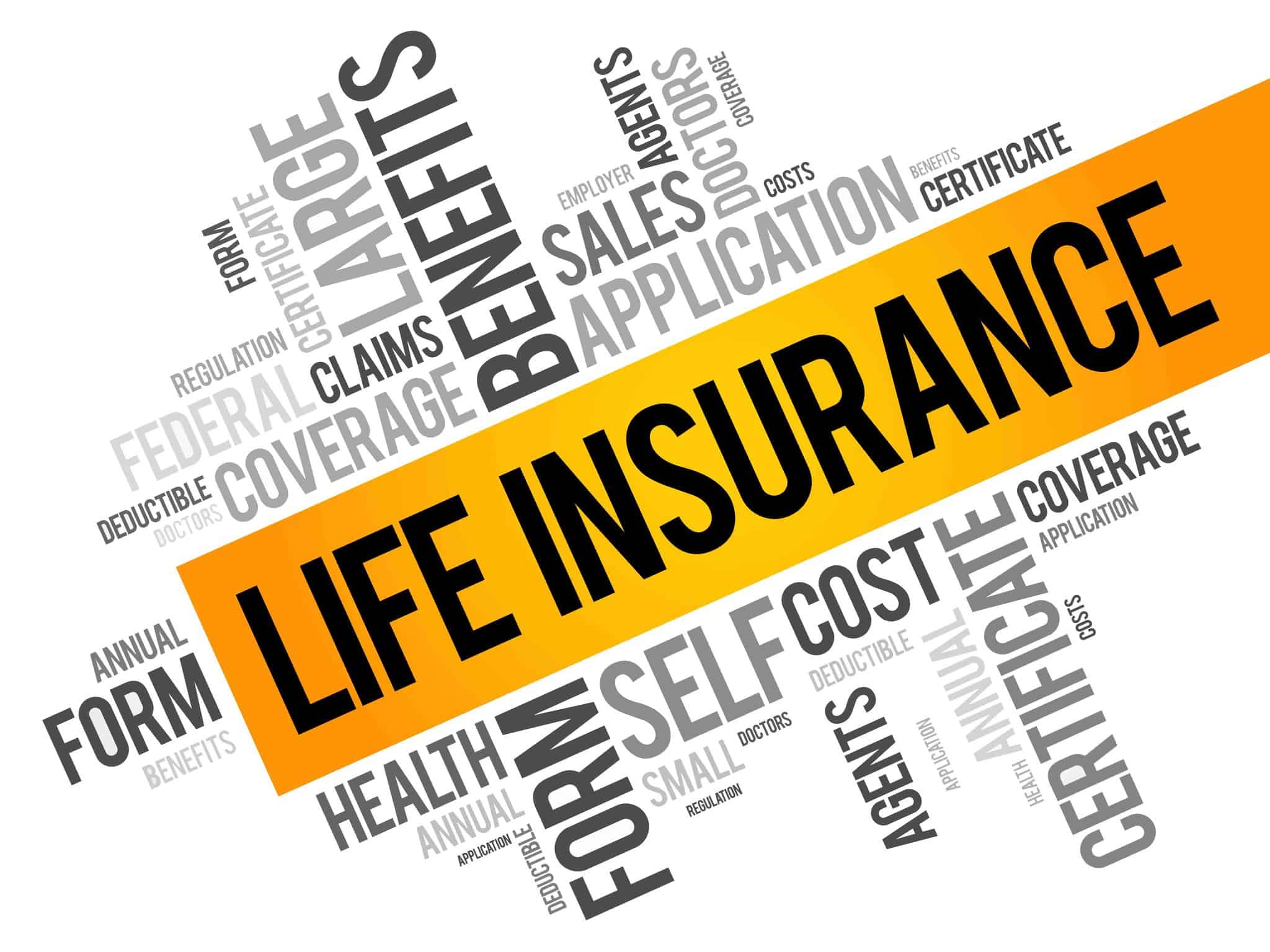702-660-7000
702-660-7000

Life insurance is an important part of planning for your future, growing, and protecting your wealth. Despite its significance, many people question if it’s really worth it. Although life insurance may seem like an unnecessary expense, having the proper coverage in the case of disaster is widely considered best practice. To help you make a decision, we’ve put together this guide so that you can adequately plan for your long-term finances.
Here’s the short answer: almost everyone needs life insurance. The slightly longer answer is that people who have dependents especially need life insurance. Life insurance is essentially a financial tool that provides a lump sum cash payment (called a death benefit) to specified beneficiaries when the insured passes away. With responsibilities like mortgages, general debt, or future expenses such as tuition, medical bills, and end-of-life expenses, most people don’t want to suddenly manage thousands of dollars worth of extra expenses if a family member dies unexpectedly.
Although some people say that you don’t need life insurance if you don’t have dependents, most people do need life insurance for one reason or another. And people who don’t technically “need it” often want the life insurance coverage to multiply their legacy.
For most Americans, it’s highly unlikely that you’ll have enough liquid cash to pay off all of your debts, provide enough money to cover liabilities like cash flow on a mortgage, build assets for retirement and keep a healthy reserve for unexpected expenses all at the same time.
Life Insurance can help you cover all these needs, and the cash value in certain types of permanent life insurance can be an additional asset to you that increases your overall net worth and allows you to recover the cost of insurance over time if everything is properly managed. The benefits of owning the right combination of life insurance for your situation almost always outweigh the drawbacks, which we’ll discuss next.
It’s always good to understand the life benefits of life insurance as well as the drawbacks and what you can do to prepare for those drawbacks.
Life insurance is a contract between an insurance company and a policy owner. The policy owner agrees to pay a premium while the insurance company agrees to take some risk by providing the death benefit protection and perhaps fulfilling other provisions in the contract if/as applicable.
Some insurance companies offer life insurance directly to the public, but typically you work through an agent to access a wider range of products and sometimes lower costs by going through a traditional underwriting process.
Your premiums are determined by factors like the policy type, your age, gender, medical and family health history, occupation, whether and to what extent you participate in dangerous pastime activities such as skydiving, etc., and how long you want a policy to provide coverage. The overall cost of life insurance will also be influenced by the provider/insurance company you choose, so it’s wise to research the options available to you and work through an experienced agent who understands how to design policies for strong and sustainable values, and can represent more than one company to give you a wider perspective of the options available to you.
There are multiple kinds of life insurance, but the two main categories are term life insurance and permanent life insurance. Depending on your personal circumstances and goals, you may need one type or a combination of term and permanent insurance for the best overall coverage. . Some topics you’ll want to discuss with your insurance agent to decide on a policy type are
Both types of policies have attractive features as well as drawbacks, so let’s go over some specifics for each policy type.
A term life insurance policy offers coverage for a predefined number of years and does not build any cash value. It’s a temporary policy, which is the main downside for most people. It will offer a death benefit payout should you die within the established term which is usually 10, 15, 20, or 30 years.
Initially, this is the most affordable type of life insurance policy, which partially explains why it’s also the most common. It’s also important to note that though cheaper, in the beginning, premiums will increase substantially at the end of the term period. Sometimes, you can get a convertible term life insurance policy so that you can eventually convert to a type of permanent life insurance without further underwriting.
There are multiple subcategories of term life insurance, such as
Some people may wonder, “is life insurance worth it if it’s temporary?” Relatively low premiums are especially attractive for many policyholders, but remember: term life insurance is always a temporary solution. Term policies can still be a good option depending on your circumstances, but a permanent life insurance policy is often a preferred choice long term.
Unlike a term life policy where your death benefit depends on whether or not you pass during the predefined term of coverage, a permanent policy offers lifetime coverage. Permanent policies also accrue cash value that you can later use as collateral for a policy loan
This offers more security, but premiums are also more expensive, particularly up front. Long-term the net cost for a good permanent policy is usually less than for temporary coverage because premium costs can be fixed.
Under the permanent life insurance umbrella, there are two primary subcategories: whole life insurance and universal life insurance.
Certain types of universal life insurance may also be tied to the stock market or mirror an index which adds to the risk you assume as a policyholder. Even though universal life insurance policies are classified as permanent life insurance, we don’t consider them permanent at all due to the lack of guarantees and high risk that is transferred to the policyholder.
Overall, permanent coverage is more expensive, but a well-designed whole life insurance policy is also more secure and makes the most of your premium dollars over time. If you can afford it, whole life insurance designed for strong and sustainable cash values is usually your best long-term option. Sometimes a combination of term and whole life insurance can be a great fit to cover both short–term and long-term insurance needs.
Sometimes, if the coverage does not fit your needs. But a well-designed life insurance policy (or a combination of policies) with affordable premiums is usually not a waste of money and can be a very wise asset purchase. If you’re still asking yourself, “is life insurance worth it?” then give us a call at 702-660-7000 and talk to someone on the McFie Insuranceteam to discuss your situation.
Yes, you can select a beneficiary for your life insurance outside of your family or friends, including an organization. This is a popular choice for single-policy owners who don’t have children and still want the living/McFie Insuranceof owning life insurance. As long as the charity, church, or other entity is listed as a beneficiary on your policy, they will receive their portion as designated.
Over time, life insurance cash values can be an excellent form of long-term savings and liquidity. It may take some time to build sufficient cash values for this purpose.
When it comes to getting life insurance, the younger the better. Other indicators that it may be time to reconsider/update your coverage is upon certain milestones such as getting married, having children, or buying a house.
For most people, life insurance is absolutely worth the money it takes to have security and peace of mind in the face of potential catastrophes. In addition, life insurance is often a worthy and lucrative asset to build and protect your wealth.
You don’t need to make a decision on your own, either way. As you consider what life insurance is the best option for your needs, check out our Life Insurance 101 for more information. Then, when you’re ready, schedule a strategy session with us to discuss your options and any questions.
 by John T. McFie
by John T. McFie
I am a licensed life insurance agent, and co-host of the WealthTalks podcast.
As a 15-year practitioner of the Infinite Banking Concept on a personal level, I can help you find the clarity and peace of mind about your financial strategy that you deserve.
Working with hundreds of financial scenarios over the years has helped me to develop a sixth sense about how to quickly find a clear and balanced solution for clients using whole life insurance as a financial tool.